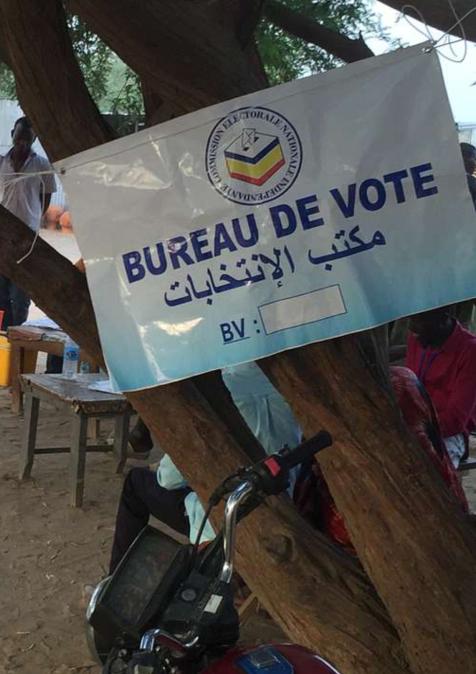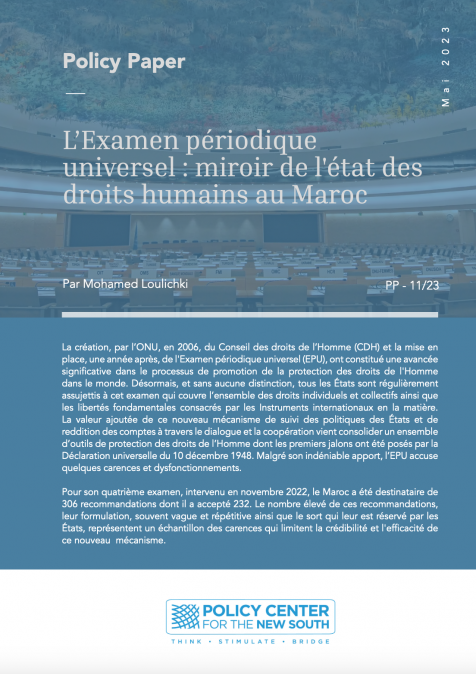Publications /
Opinion
The African Union goes to Mauritania
Under the theme “Winning the Fight Against Corruption”, the 31st Summit of the African Union was held in early July in the desert capital Nouakchott. In a bitter prelude in late June, the AU’s commitment to this central theme was dealt a blow with the sudden – and public – resignation of Ghana’s Daniel Batidam from the AU Advisory Board on Corruption. Off to a rocky start, the summit had an even rougher road ahead of it.
A month before the launch of the summit, the conference grounds were barely a foundation, and the available accommodation looked entirely unfit to host heads of state and senior officials. A road connecting the airport to the conference complex was hurriedly built and tarred in a single day, a few hours before the first dignitary landed at the nearby Nouakchott-Omtounsy International Airport. Inside the complex, attendants were treated to sockets wrapped in masking tape, unfinished toilets, building dust and rubble.
Add to these logistical difficulties the security threats posed in the region by the string of devastating jihadist attacks carried out in neighbouring Mali before and during the summit – including that on the HQ of the G5 Sahel Joint Forces in Sévaré – and you have a recipe for disaster.
But Mauritania pulled it off. Amid airtight, balaclava-clad security, some 30 African leaders gathered under the auspices of Mauritanian President Ould Abdel Aziz to discuss the state of the continent. Topping the agenda were this year’s anti-corruption theme, the institutional and financial reform of the AU, the peace and security situation in the continent, and the teething issues of the Continental Free Trade Area.
Gaining Ground on Corruption
Corruption is a defining challenge for Africa. While curbing corruption is a worldwide concern, the cycle of graft that has plagued Africa since the colonial era has been a persistent barrier in its path to stability, development and prosperity. According to Dr. Vera Songwe, Executive Secretary of the UN Economic Commission for Africa, a neat $148 billion is syphoned out of Africa every year through various corrupt activities. But the battle against corruption rages on despite its difficulty, and the campaign has grown spirited in recent years.
Daniel Batidam’s forthright resignation reminds us that the AU does not escape the problems dogging African institutions, but the fledgling continental body has managed all the same to bring corruption to the forefront of public discussion and spur a wave of concrete reforms among its member states: from Botswana’s innovative approach of mainstreaming anti-corruption to Rwanda’s rigorous enforcement of its leadership code of conduct, Cabo Verde’s promotion of institutional transparency, and Nigeria’s national anti-corruption strategy. As the champion of this year’s theme of anti-corruption, Nigerian President Muhammadu Buhari presented a barren presidential debate where everyone agreed that, indeed, corruption is bad. Much remains to be done, but it seems that, for now, the AU has taken a backseat to the efforts of individual member states.
Reforming the African Union
More than halfway through his tenure, AU Chairperson Paul Kagame is still facing strong headwinds in implementing his institutional and financial reforms package. This summit did little to push things forward, as disagreements on major points remain among member states.
Contentious points for the institutional reforms included the method of selection of AU leadership, the hierarchy of organs within the AU, the power dynamics between the member states and the continental body, the division of labour between this latter and the Regional Economic Communities (RECs), and the future role of the New Partnership for Africa’s Development.
In line with the drive to achieve a transparent and streamlined AU, the Nouakchott summit had budget proposals debated by the Assembly for the first time. The budget for 2019, decided at $681.5 million, will see a 12% reduction from that of this year. Although still largely supported by external donors, who will provide 54% of the funds in 2019, the AU continues to make important strides towards financial independence. Donald Kaberuka’s self-financing formula is a central pillar in this project, with 14 states already collecting the 0.2% levy from eligible imported goods and another 23 at various stages of implementation. However, consensus among member states on the application of the levy remains elusive.
Clearly, the ambition of the reforms is struggling under the unwieldy reality of their implementation. Key actors, ranging from the member states to the Regional Economic Communities and the organs of the AU itself, have voiced their concern over the legal and technical feasibility of the reforms – going as far as tabling formal complaints – and expressed their displeasure regarding the lack of consultation and transparency from the outset of the process. Kagame now has the urgent task of winning over clusters of influential actors, both RECs and members states, in each sub-region, and then mobilize these to gain wider support in the continent.
Peace and Security, Always
Peace and security issues figured prominently in the summit, and for good reason. Africa is rife with conflicts, all competing for the AU’s limited attention and resources.
President Macron dropped in during the summit for a side-event with the heads of the G5 Sahel states (Burkina Faso, Chad, Mali, Mauritania and Niger). The discussion, made all the more urgent by the deadly attacks in Mali, revolved around the French-backed G5 Sahel Joint Force, whose modest track record was pinned on the lack of trust and constant bickering among its constituent states. A shake-up of the Joint Force leadership was decided during the side-event: the Malian first commander and his Burkinabé deputy were replaced with a Mauritanian General and a Chadian second-in-command. This may be an attempt to appease President Ould Abdel Aziz, who has become increasingly vocal about his dissatisfaction with the Joint Force, and to incentivize more engagement from the Mauritanian and Chadian armies, the most seasoned and best equipped among the G5 forces.
The AU's Ad Hoc Committee on South Sudan convened to discuss the troubled peace process in the country, hours after a freshly-inked ceasefire between the government and the opposition was breached. The AU called for punitive measures and the UN obliged, imposing an arms embargo on Juba and threatening further, more involved action. Since, the warring leaders in South Sudan have agreed to sit at the negotiating table in search of a power-sharing agreement.
Chairperson of the African Union Commission (AUC) Moussa Faki Mahamat presented a report on the southern provinces, calling on all parties to resume negotiations in good faith. Partly to temper voices calling for the AU to take over the UN’s MINURSO presence, the Nouakchott summit saw the establishment of a Troika supported by Mahamat and made up of the current chairperson of the AU President Kagame, his predecessor President Condé, and his successor President el-Sisi. The Troika was mandated to support MINURSO, without supplanting it, in its efforts to resume negotiations. Mahamat was also tasked to reactivate the AU Office to MINURSO in Laayoune, Morocco.
Moving forward, it is critical for the AU to recast its peacekeeping partnerships both with external actors and with Africa’s own Regional Economic Communities. Importantly, AU leadership has been working to curb its dependence on outside funding, the target being the AU’s vision for a peacekeeping in Africa that is authorized by the UN but led by the AU. Regrettably, this is more dream than vision at this time: the $273.3 million peacekeeping budget for 2019 is almost entirely funded by external donors, with the AU’s 5% contribution well short of its commitment to fund a quarter of its peacekeeping operations by 2021.
The Promised Continental Free Trade Area
In his Prisoners of Geography, Tim Marshall writes: “there are lots of places that are unsuccessful, but few have been as unsuccessful as Africa”. Despite being the runner first off the block, and despite having abundant resources and a youthful population, Africa continues to trail behind the rest of the world in economic development. One economic challenge in particular has recently received ample attention from the African community: the stunted intraregional trade.
The Continental Free Trade Area (CFTA), perhaps the most promising project undertaken by the AU to date, aims to unite Africa’s economies under a cumulative GDP of $2.5 trillion and a market of 1.2 billion people, the largest free trade area to be created since the World Trade Organization. Good progress was made during the Nouakchott summit, as 5 new member states signed the Agreement Establishing the CFTA, increasing signatures to 49 (out of 55 AU members), and 2 deposited their instruments of ratification, increasing ratifications to 6 (out of a needed 22). The group of signatories now includes 8 out of the 10 biggest African economies, with Nigeria promising to join in as soon as its consultations with private sector actors conclude. Notably, the summit also recorded the Assembly’s adoption of the 5 priority sectors for the CFTA: transport, communication, finance, tourism and business.
All this is certainly good news, and the benefits of the CFTA can be many and varied, but we must manage our expectations and keep in mind that trade agreements do not create trade. They facilitate its expansion, and only if the negotiation, design and implementation processes are well-managed, with the private sector onboard.
Even after every AU member state signs the agreement and the minimum number of ratifications is reached, the CTFA would still not be out of the woods. The amount of generated trade would ride on much less headline-worthy factors: the powers vested in the CTFA Secretariat, the clarity of the CTFA’s legal regime, the changes in tariffs and rules of origin implemented by individual member states, and the management of structural trade facilitation issues.
We would be missing the mark if we look to signatures, ratifications and grandstanding declarations for indicators of a healthier African trade. Rather, it is progress in trade facilitation – including the removal of needless red tape, the reduction of border delays and the harmonization of regulation – that experts point to as the way forward.
Parting Words
As impressive as they were, the Nouakchott summit’s significance for Mauritania goes beyond its almost impossible logistical feats. This relatively small summit was a strong statement by Ould Abdel Aziz of his political virility and a transparent gauge of his influence. Friendly and less friendly observers would have been on the lookout for chinks in the President’s armor, perhaps an echo of Jacob Zuma’s prophetically ill-attended reception during the January summit in Addis Ababa. In a tense pre-electoral period, when the opposition is more vocal, more widely supported and better organized than ever, and when Ould Abdel Aziz and his party are showing signs of fatigue and internal feuding, the summit was a much-needed show of strength for the President.
Success was more modest for the AU. While the summit proceeded without major issues, there was little to write home about in the way of significant progress. From peace and security to economic integration, fighting corruption and the all-important reforms, the AU’s main areas of work are still a long way from its optimistic Agenda 2063. More immediately, Kagame’s hope for his reforms package now rides on the extraordinary summit set for November. This will be his last summit before el-Sisi takes the helm early next year, steering the AU away from reforms and towards peace and security.









